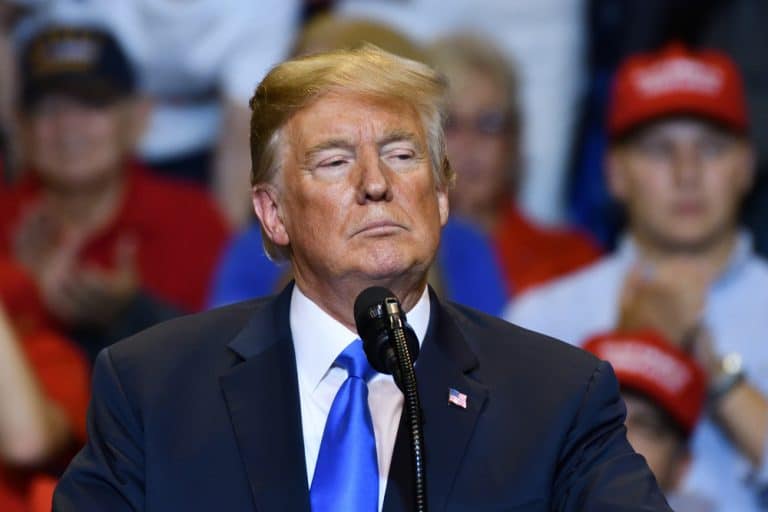Can Trump really postpone the 2020 US presidential elections? Here’s everything you need to know

Faced with a rapidly shrinking economy and poor forecasts in the polls, President Trump floated the idea of postponing November’s presidential election, citing “fraudulent” mail-in voting as a rationale.
Trump’s tweet has been seen by many as indication that he and some in his base might reject the outcome of the election should his Democratic opponent, former Vice President Joseph R. Biden Jr., win in November. Why exactly would Trump want to postpone the 2020 US presidential election and can it actually happen?
Trump’s tweet about postponing the election
“With Universal Mail-In Voting (not Absentee Voting, which is good), 2020 will be the most INACCURATE & FRAUDULENT Election in history,” Trump tweeted Thursday morning. “It will be a great embarrassment to the USA. Delay the Election until people can properly, securely and safely vote???”
With Universal Mail-In Voting (not Absentee Voting, which is good), 2020 will be the most INACCURATE & FRAUDULENT Election in history. It will be a great embarrassment to the USA. Delay the Election until people can properly, securely and safely vote???
— Donald J. Trump (@realDonaldTrump) July 30, 2020
The tweet has elicited immediate backlash from Democrats but, to date, received little response from Republican lawmakers and politicians.
Trump’s baseless attacks on mail-in voting
This isn’t the first time Trump has taken aim at mail-in voting. Throughout the primary season, Trump repeatedly claimed that conducting elections via mail-in ballots guarantees fraudulent outcomes and tip the scales in favour of Democrats. “There is NO WAY (ZERO!) that Mail-In Ballots will be anything less than substantially fraudulent,” the president tweeted back in May, referring to the California primaries. “Mail boxes will be robbed, ballots will be forged & even illegally printed out & fraudulently signed. The Governor of California is sending Ballots to millions of people, anyone…”
It’s important to highlight that Trump’s assertions regarding mail-in ballots as a fraud-inducing voting method are downright inaccurate, and bi-partisan experts from across the US have repeatedly attested to the contrary. “Multiple studies have found that there is no widespread fraud in US elections, and that includes voting by mail,” the CNN reported.
Responding to Trump’s claim that mailing in ballots will benefit Democratic candidates, David J. Becker, executive director of the Center for Election Innovation & Research, stressed that both Democrats and Republicans have won elections through mail-in voting. “Honestly, amongst election administrators it’s not [a political fight]. They know mail voting is secure, they know mail in voting will be preferred by a lot of people in this environment, and it helps them provide for in-person voting for the people who need it,” he added.
To be clear, unlike what many Republicans have stated previously, Democrats are not pushing for a federally-mandated system of mail-in voting across the nation in November, but are rather advocating for increased federal financial assistance to states so they could institute their own mail-in voting mechanisms.
Trump is only deflecting attention
Many view Trump’s proposal to postpone the election as an attempt to shift attention away from his poor handling of the coronavirus pandemic, which has to date cost the lives of more than 150,000 people in the US, and a swelling economic crisis.
Trump’s tweet was posted minutes after the Commerce Department announced that the US GDP has shrunk by 9.5 per cent over the three months ending 30 June, and that the US economy shrank at a 32.9 per cent rate during these months—the worst drop on record. Once a promising re-election pillar, the economy has become a matter so dire that Trump is desperate to deflect public attention from it.
Trump’s poor performance in recent polls and his unclear prospects in key battleground states may have also propelled him to call for a postponement of the election and cast doubt about the validity of the results.
Can Trump postpone the election?
No. The US President has no authority to cancel or reschedule election dates. According to Article II of the US Constitution, only Congress is endowed with the power to do so.
Trump’s tweet does, however, place American democracy at grave risk by inspiring distrust about the electoral process among his voter base, and preparing the ground for his refusal to accept the election results and leave office should he lose in November.




